
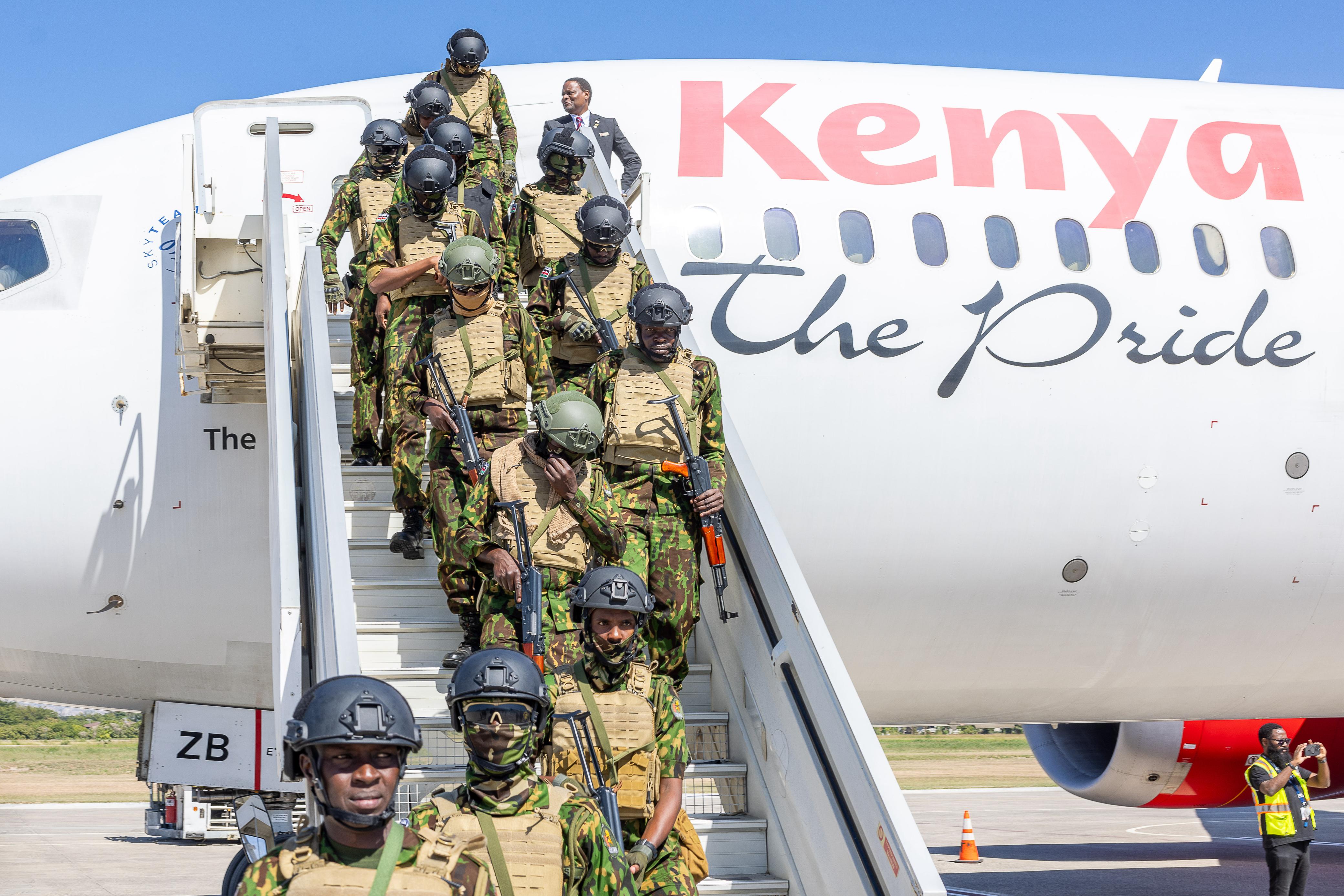
About 30 female police officers are among 217 additional Kenya officers who arrived in Port-au-Prince on Saturday aboard a chartered airplane escorted by the U.S. military.
They had to be escorted by the US military because the airport in Port-au-Prince, Haiti is closed over threats from gang violence.
The plane landed in Port-au-Prince shortly after 11 a.m in Haiti on Saturday escorted by U.S. military.
In November, three US jetliners flying over Port-au-Prince’s airspace were hit by gunfire, fueling concerns about the safety of the capital’s skies.
Upon arrival in Haiti, the Kenyan contingent "chanted Kenya mambo mbaya, a tradition common when they go land on a mission.
Deputy National Security Advisor Joseph Boinet and Deputy Inspector General of Police Gilbert Masengeli were part of the senior government officials escorting the team.
"We want to thank the international community for heeding the call for Haitian people and supporting this MSS. We have come in the name of President William Ruto. We thank the government and the people of Haiti for welcoming the MSS as brothers and sisters and working with them towards realization and achievement and the mandate of the United Nations," Boinett said.
Boinett assured the Haitian people that the Kenyan government would continue to support the peacekeeping efforts in Haiti.
Masengeli on his part assured all stakeholders that the Kenyan Police unit was prepared for the success of the mission.
"I am glad to note that since the first contingent, the officers have conducted successful operations against gangs. They have operated in challenging environments to protect civilians and citizens in general," Masengeli said.
The 217 Kenyan cops will join 400 of their compatriots already in Port-au-Prince.
Their presence boosts the total number of foreign security personnel to just under 800.
There are currently police and military officers from Jamaica, along with soldiers from The Bahamas, Belize, Guatemala and El Salvador.
This came after months of uncertainty about whether President William Ruto would continue to field cops for the struggling mission in Haiti, where gang violence last year reached record levels.
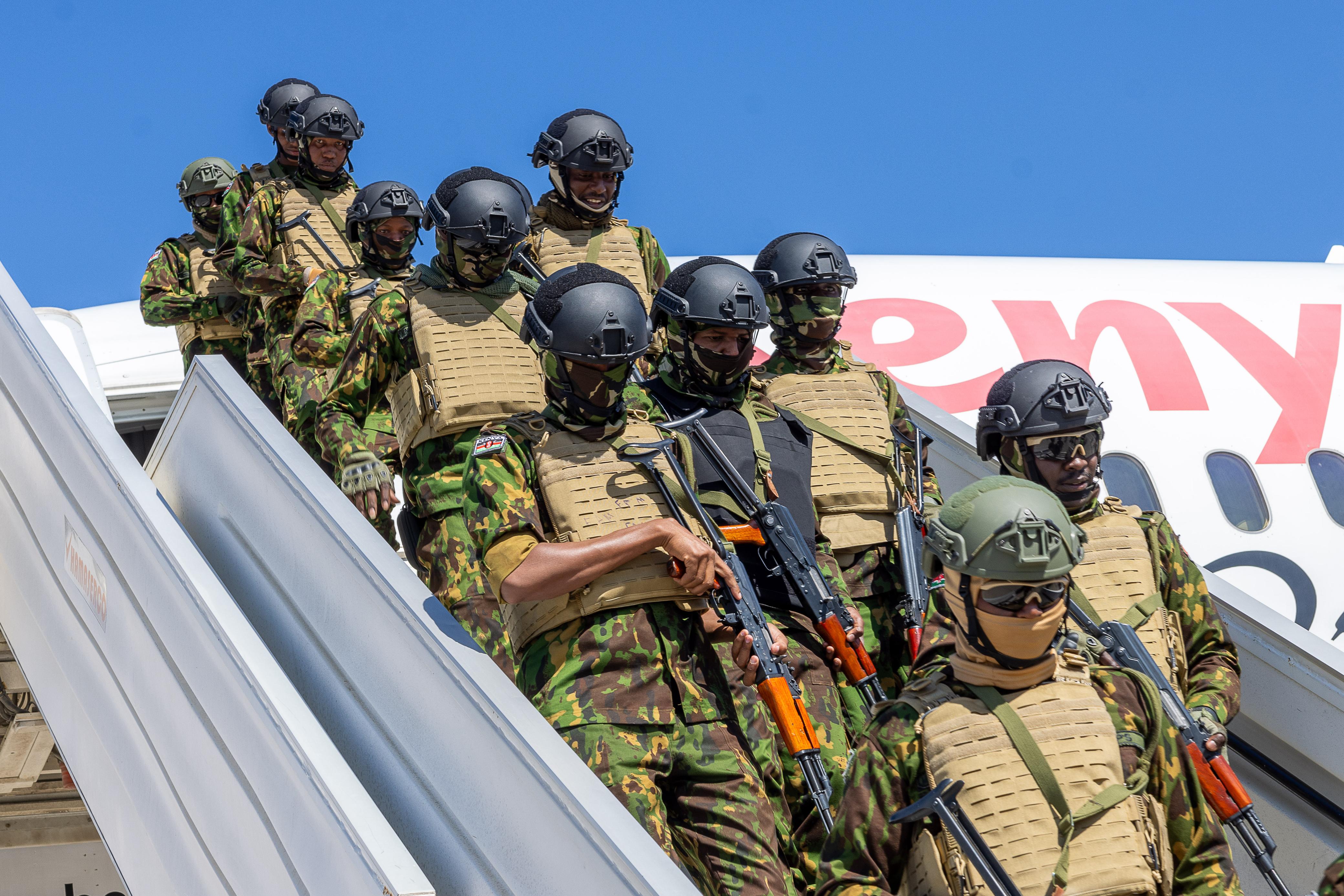
After disembarking, the Kenyans, as customary, danced and chanted on the runway while carrying their rifles.
Others carried a Haitian flag.
The contingent was warmly received at the airport by a distinguished delegation, including Presidential Advisor Fritz Alphonse Jean, Prime Minister Alix Didier Fils-Aimé, Minister of Justice and Public Security Patrick Pélissier, Secretary of State for Public Security Mario Andrésol, Haitian Police Director General Normil Rameau, Multinational Security Support Mission (MSS) Force Commander Godfrey Otunge, U.S. Ambassador Dennis B. Hankins, and Canadian Ambassador André François Giroux.
Leading the Kenyan delegation were Joseph Boinnet (Deputy National Security Advisor), Gilbert Masengeli (DIG-Administration Police Service), and Ranson Lolmodooni (SAIG Commandant, General Service Unit).
The new group included at least 30 female cops and is among 600 trained and US-vetted cops from various units of Kenya’s National Police Service.
They have been trained to handle female suspects and stage patrols professionally.
Boinnet expressed gratitude to the Haitian government for its close bilateral relations with Kenya, emphasizing Kenya’s commitment to fostering peace and helping Haiti regain its former glory.
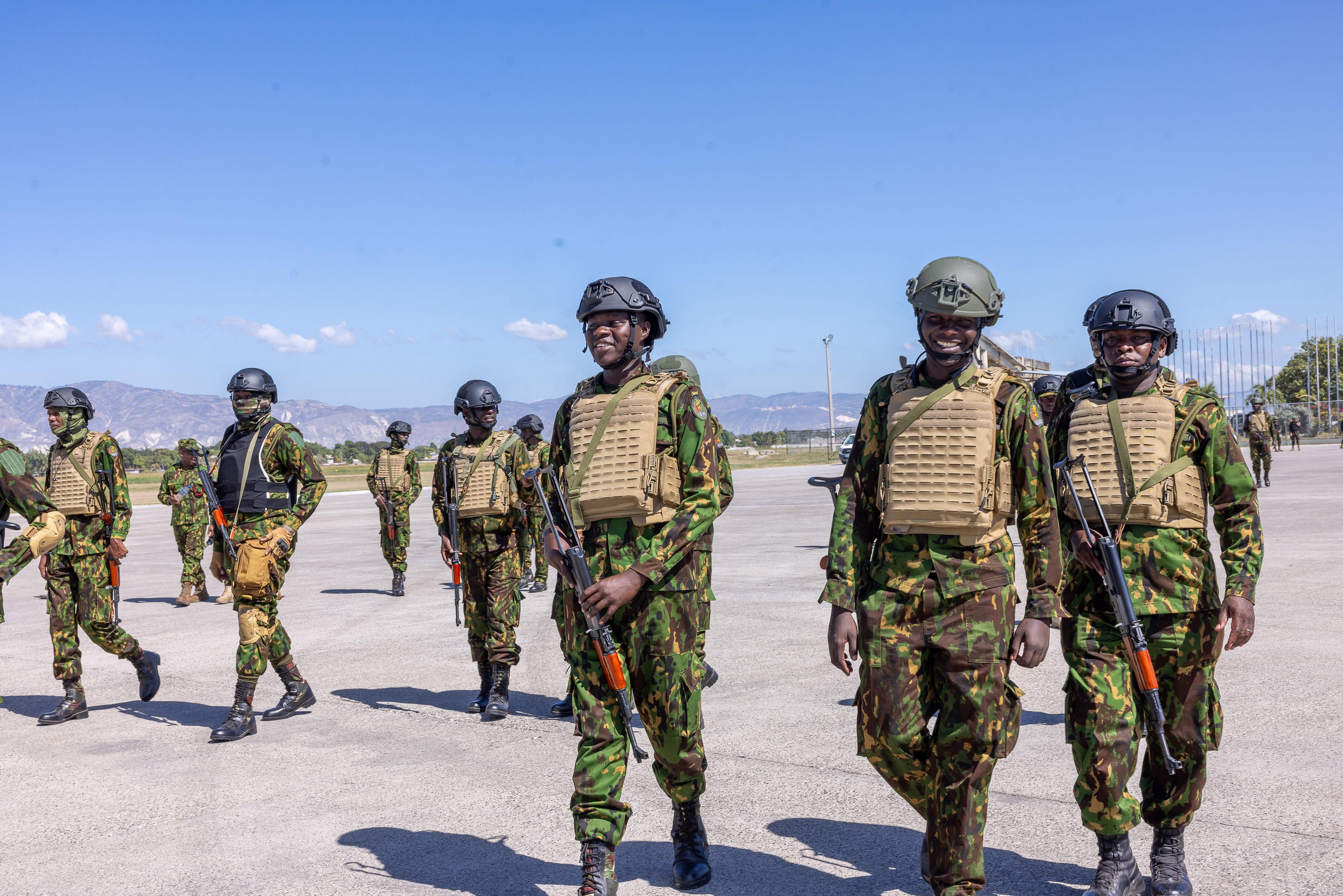
He announced plans to open a Kenyan consulate in Haiti to strengthen these ties.
Masengeli, delivering a speech on behalf of Kenya’s Inspector General of Police, Douglas Kanja, commended the officers for their outstanding efforts despite the challenges they face.
He reminded the personnel of the need to uphold the highest standards of conduct, including zero tolerance for sexual exploitation and abuse, avoiding misconduct, and refraining from working under the influence of alcohol or drugs.
President Wiliam Ruto had promised in September to deploy to Haiti before the end of the year.
But the effort was stalled after Democrats lost the U.S. presidential election in November and Haiti’s ruling council days later replaced the prime minister after less than six months.
Both moves created uncertainty for Ruto, who had also expressed worries about the mission’s lack of resources, including funding and equipment, as it struggled to help Haitian police take down armed gangs.
Ruto’s uncertainties about the mission’s fate seem to have been put to rest, at last for now, following last week’s comments from President-elect Donald Trump’s nominee for secretary of state.
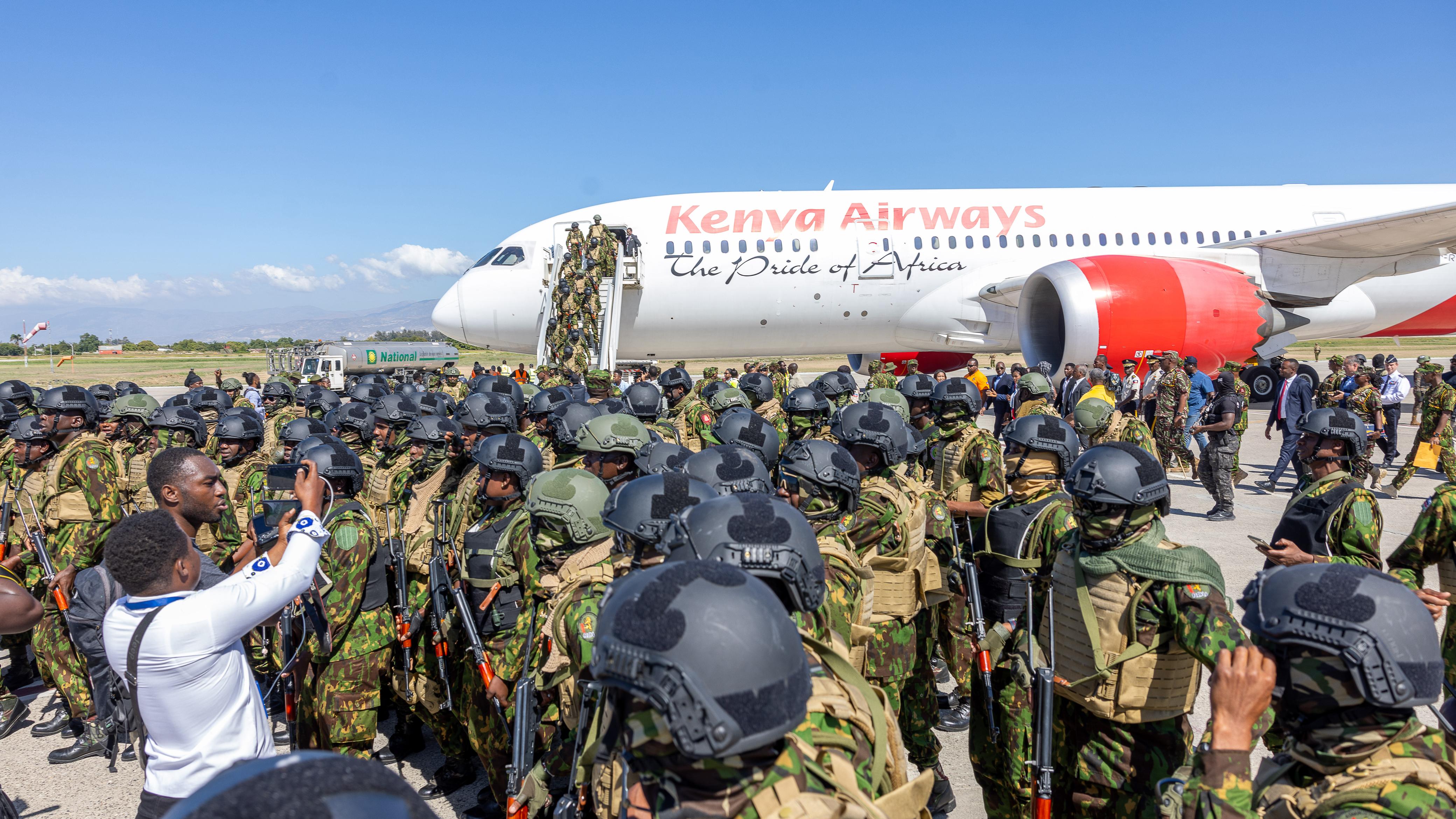
During his Senate confirmation hearing, Florida Sen. Marco Rubio lauded Kenya for its leadership of the Multinational Security Support Mission in Haiti, and signaled continued U.S. support.
Rubio’s comments were immediately noticed and on Saturday at 2 a.m. Kenya time, officials from both the interior and foreign affairs ministries waved the new contingent off as they boarded a Kenya Airways aircraft from Jomo Kenyatta International Airport in Nairobi.
The Biden administration, which had been pushing Kenya to deploy its remaining officers, had hoped to bring the mission’s strength up to 1,000 officers before it leaves office on Monday, January 20.
But even 1,000 security personnel or the mission’s targeted goal of 2,500 is insufficient, security experts say.
Last year, Haiti saw a record number of neighbourhoods in Port-au-Prince and surrounding areas fall to armed gangs, despite the presence of foreign forces and a new U.S.-backed transition government.
As the gangs took over neighbourhoods and carried out some of the worst massacres in recent memory, they also deepened the country’s humanitarian crisis as tens of thousands more Haitians were forced to flee their homes.
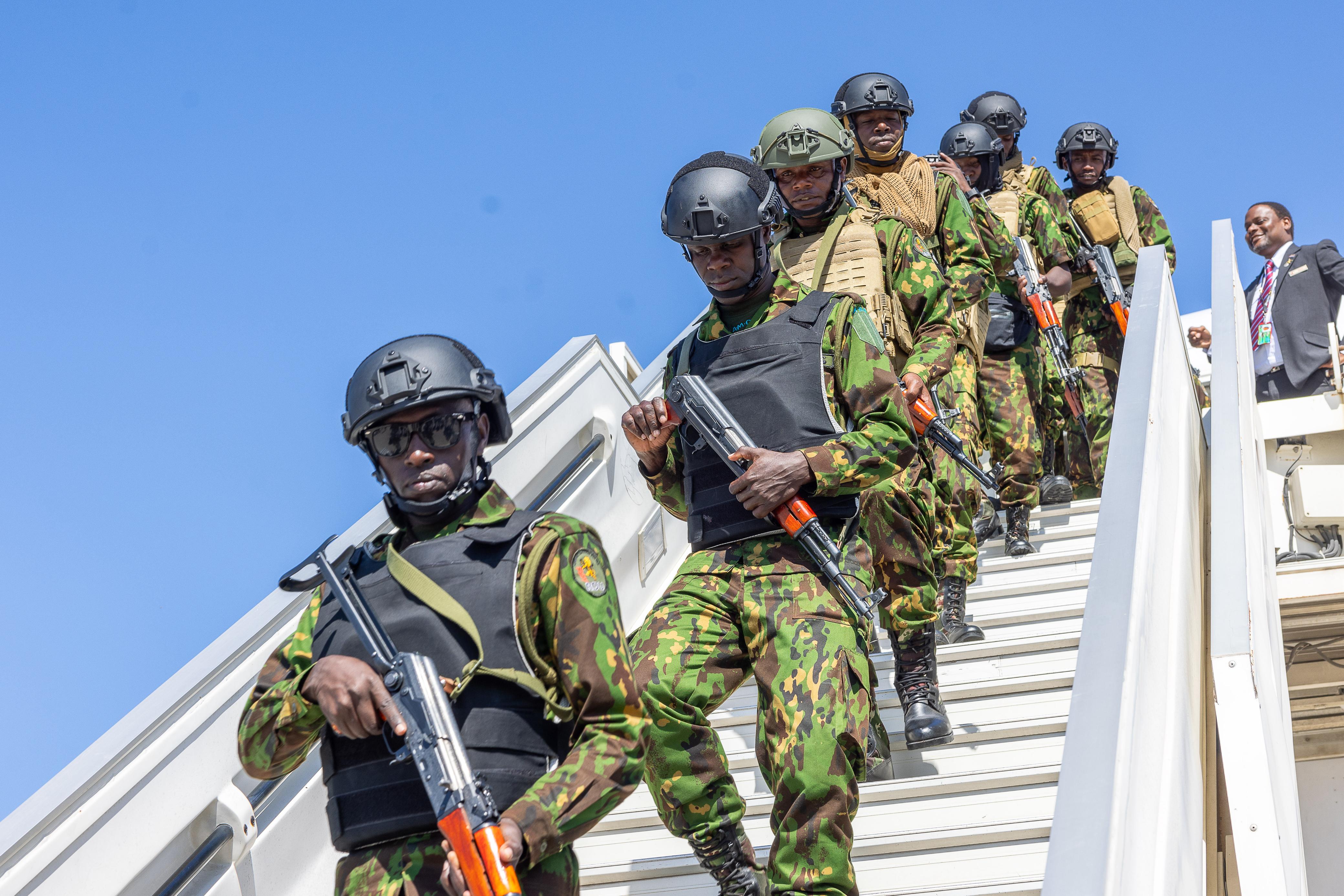
The United Nations said more than 5,600 people were killed by gang violence last year, an increase over the previous two years, and over 1 million Haitians are now displaced.
Kenya promised 1,000 police officers as part of its offer to lead the mission.
To address the money issue, the outgoing Biden administration has asked the UN Security Council to transform the mission into a formal UN peacekeeping operation, which would guarantee funding through members’ assessed contributions and allow the force to expand and get the needed equipment.
Whether this is something the Trump administration will support remains unclear.

During Trump’s first term in office, a UN peacekeeping force was on its way out of Haiti, and despite concerns the country wasn’t ready to take control of its own security, the administration did not stop the move.
Last week, Haiti’s ruling transition made the country’s former police chief, Mario Andresol, secretary of state for national security.
A former infantry officer in the Haitian Armed Forces, Andresol was tapped in 2005 to lead the Haiti National Police as it became infiltrated by drug-trafficking cops and as gangs’ foothold endangered a government transition.












